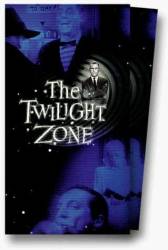The Thirty-Fathom Grave - S4-E2
Factual error: On the bulkhead of the ship's sickbay is a standard 12-hour civilian clock. It shouldn't be there. All clocks aboard U.S. Navy vessels show 24-hour military time. (00:31:20)
No Time Like the Past - S4-E10
Factual error: The U-boat has a spinning sonar mast. Subs in 1915 didn't have that.
Of Late I Think of Cliffordville - S4-E14
Factual error: Even though its supposed to be 1910, the banker's daughter plays a 1960's Steinway piano.
The Incredible World of Horace Ford - S4-E15
Factual error: In the opening scene, Horace painstakingly loads his six-shooter cap pistol with a six-cap round - then shoots his boss with it seven times. (00:00:40)
On Thursday We Leave For Home - S4-E16
Factual error: The colonists' planet has twin suns and, we're told, no night. We see the suns, side-by-side in the sky. But twin suns would not create perpetual day. Night/day is caused by the rotation of the planet on its axis, regardless the number of suns. In a binary star system, the two stars orbit each other around a central point in space. The planets would orbit around that central point too. In order for there to be no night, the planet would have to pass between the two stars, a process it would not survive. The gravitational forces of two opposing suns would tear the planet apart. (00:18:35)
Suggested correction: This assumes that all planets orbit along a Sun's equatorial plane, which they don't. In fact Earth's orbit is 7° off on either side of our Sun's equatorial plane. Also taking into account the tilt of their planet, it's likely that experience a similar phenomenon to that of Alaska, although for much longer, where their orbit and position don't allow their side of the planet to see darkness.





